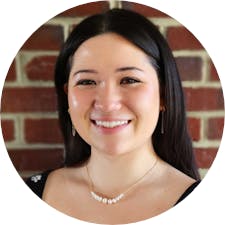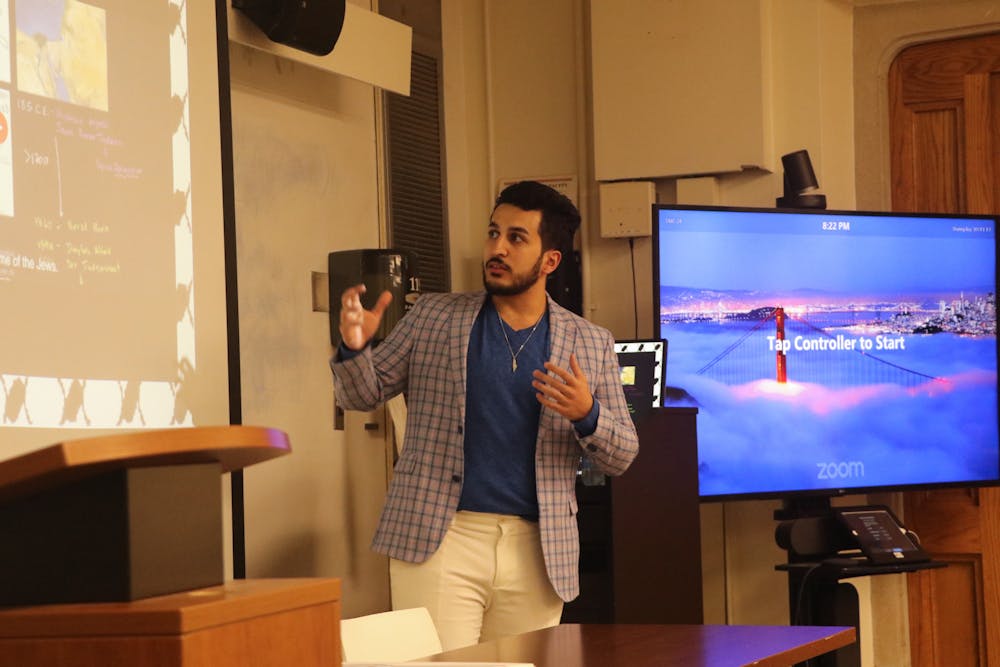Students for Justice in Palestine hosted "Palestine 101" with guest speaker and activist Ahmad Amireh Thursday to deliver a presentation on the history of Palestine, Israeli occupation and current events.
Amireh, who is Palestinian, drew upon his personal and familial experiences as well as data and historical documentation. He cited books written by both Zionist and Arab authors, discussing the impacts of those works on the development of the conflict in Palestine.
Amireh hoped to educate the audience on the establishment of Israel and Palestine, as well as explain its lasting impacts on Arab families and communities.
“My favorite thing is someone coming up after and saying, ‘Hey, I want that book title [that you mentioned],’” Amireh told The Chronicle. “Because it means that they are going to take that deep dive and get away from the narrative and rhetorical devices and learn. I think if you approach this topic from the perspective of ‘I want to learn and become knowledgeable,’ then you will end up supporting the Palestinian cause because we are rooted in history, and we are rooted in truth.”
And that truth manifests itself beyond the books and records for Amireh, because in Palestine, Amireh lives it. Amireh mentioned that while entering the country, he must pass through the Israeli airport with Israeli security. Each time this happens, he is interrogated in a separate room because of his nationality.
To Amireh, this scenario illustrates that Israel is an “apartheid state,” since there are two sets of laws for two different communities of people in the same state. Amireh says he will always receive different, far more discriminatory treatment in Israel, just for being Palestinian.
Amireh also described the dangers he has faced for advocating for the Palestinian cause. For instance, he said that in the past people have called his school’s financial aid office to try to remove him from scholarships because of his vocal support for Palestine.
“I have something that I realized means more to me than financial aid or job security and that's my homeland,” Amireh said. “And I don't feel fulfilled without it. So taking those risks of sharing this is worth it because you hope that one day, you can live in your home.”
SJP member Hamza Mohamoud, a second-year master of public policy student, said that discussing this conflict can be extremely frustrating because of its associated “gag rule.” Because the topic is so sensitive, it is not surprising to hear about people getting harassed online due to their support for Palestine, he said.
“I'm hopeful that things are getting easier to discuss and host events about it,” Mohamoud said, citing high turnout in recent SJP events. He hopes that being able to openly talk about these topics will allow more people to engage in activism.
Amireh said that his intentions are not to argue with those who disagree with him, since he has never found that to result in productive conversation, but to express his learnings and experiences with those who are there to listen.
“There's people that want to learn and want to listen and are interested,'' Amireh said. “I have a lot of energy and effort to give those people that are open minded ... And I want to give them my energy.”
Get The Chronicle straight to your inbox
Signup for our weekly newsletter. Cancel at any time.

Olivia Kim is a Trinity first-year and a staff reporter of The Chronicle's 118th volume.

